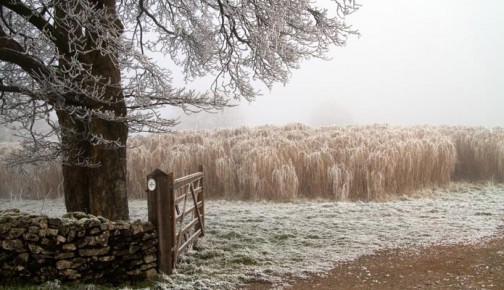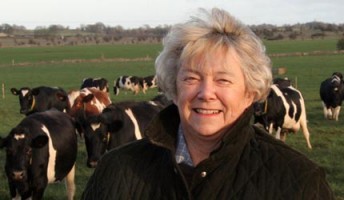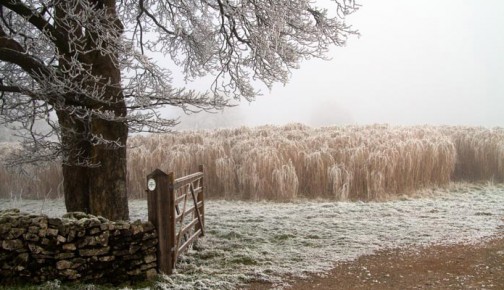
Successful organic dairy company Yeo Valley is burning home-grown Elephant Grass (miscanthus) to heat their farm office buildings this winter.
Elephant Grass is a tall, coarse plant, originally from Africa that will grow for about ten months of the year in Britain. It can be grown for biofuel.
The seeds in its dense, tufted seed heads are very small and do not germinate well. It reproduces mainly through rhizomes – root-like underground stems that send shoots up to the surface in spring.
Rhizomes are planted in April or May and new shoots develop into erect stems 2m tall by August. Most of the nutrients move back down into the rhizomes during die-back in the autumn. The leaf fall creates a deep litter under the crop, adding organic matter to the soil.
The almost bare canes are harvested from November to February before the growing cycle starts again as temperatures rise.
Yields from the first two seasons are low but in year three and after, the crop can reach 3.6m tall and yield about 20 tonnes/ha.
Green fuel
Yeo Valley has high green credentials and look for ways to reduce their reliance on fossil fuels. They use solar panels to capture sunlight energy, and only use 100% renewable energy when they have to buy it in.
The harvested stalks are shredded and left to condition in a dedicated barn where it is kept cool and dry. When ready, trailer-loads are tipped into a special boiler for burning to produce heat.
Reasons why Yeo Valley like Elephant Grass as a biofuel :
- Very low fuel miles – grown close to where it is burnt
- Planted once: grows for 20 years. Truly renewable
- Grows on marginal land where nothing much else would grow
- Absorbs CO2 as it grows – balancing the carbon lost when burned
Find out more at www.yeovalleyorganic.co.uk
PS. Congratulations to Mary Mead, Yeo Valley’s co-founder who was awarded an OBE in recognition of her services to sustainable dairy farming, which she began back in 1961 when she and her husband Roger moved to Holt Farm in the Yeo Valley.


